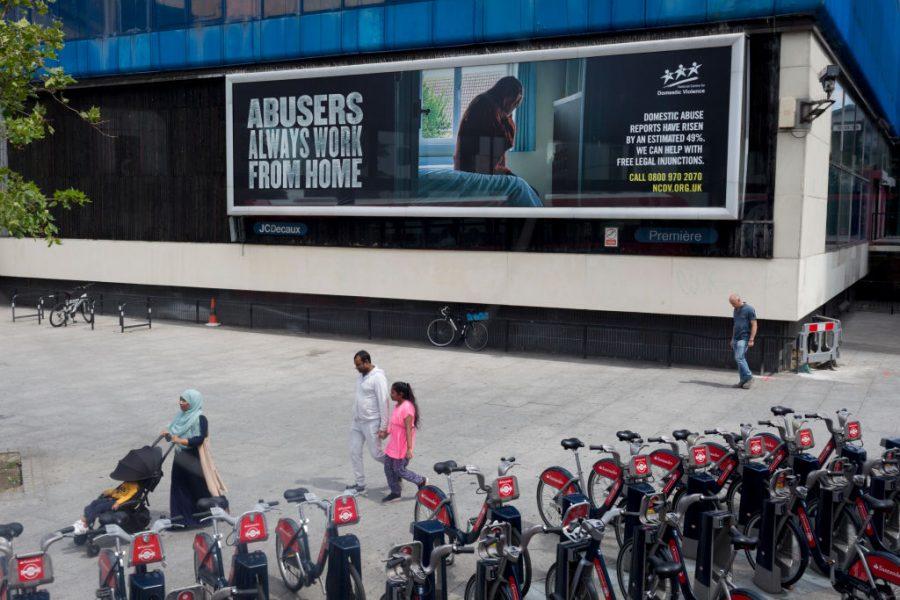
Launch of international guidelines for police investigating violence against women and girls
A handbook on gender-responsive police services for women and girls subject to violence has been released by UN Women, the UN Office on Drugs and Crime and the International Association of Women Police. Created in response to increased reports of intimate partner violence across the world during the Covid-19 pandemic, it stresses the importance of police training to prevent gender-based violence. The handbook provides in-depth guidance to police on the need to approach such crimes from the survivor’s point of view by prioritising the rights and needs of women, not the perpetrator.
The handbook’s survivor-centric approach is intended to foster supportive environments in which the rights and dignity of the person subjected to the violence are respected.
Facilitating women’s participation in peace negotiations
The UN Women’s Peace and Humanitarian Fund is providing finance through a ‘rapid response window’ designed to speed women’s participation in peace processes and the implementation of peace agreements. The funding is intended to remove logistical barriers stopping women from taking part in negotiations, such as the cost of childcare, interpretation needs and travel expenses. Pilot schemes are running in Mali to encourage women’s participation in implementing the agreement for peace and reconciliation and in Afghanistan to assist diverse women’s organisations.
Domestic violence in India increases during lockdowns
India’s recent Covid-19 lockdown has led to an alarming increase in domestic violence and abuse. This ‘shadow pandemic’ has sparked intense public discussion in India about women’s rights. Several community-based women’s self-empowerment groups have responded by increasing their support networks and providing shelter for abuse victims with backing from United Nations India and the UN Population Fund. Indian actress Kirti Kulhari tagged @unwomenindia in a video emphasising that while the lockdown promotes the nation’s safety, many women are unsafe at home. These events reflect global trends whereby the pandemic has exacerbated existing patterns of abuse.
Gender and far-right terrorism
The presence of women among the rioters storming the US Capitol in January illustrates that the extreme right is not just angry white men.
A selfie video of two pro-Trump women trying to find Nancy Pelosi received popular coverage because it challenged assumptions about women being non-violent actors. The video showed the role of women in extremist organisations. In a report by Julie Hare for Broad Agenda, Kristy Campion of Charles Sturt University highlights women’s efforts in facilitating and supporting long-term terrorist efforts, particularly online. Assumptions that women are not involved in such activities is a potentially dangerous blind spot in counterterrorism work and sentencing.
The impact of WPS language in UN peacekeeping mandates
A new paper published by the International Peace Institute, written by ASPI’s Lisa Sharland, examines the impact of WPS language in UN peacekeeping mandates on the role of uniformed women peacekeepers. Among its findings, the paper reports that the choice of words impacts the implementation of the WPS agenda. Phrases like ‘meaningful participation’ emphasise the importance of women’s influence rather than tokenistic representation in women’s peacekeeping roles.
To ensure peacekeeping mandates more comprehensively address WPS issues, the report recommends that UN Security Council members propose WPS language early in the mandating process, hold informal consultations between WPS and country experts, and include language that dispels stereotypes and reflects the contributions of both men and women on peacekeeping missions.
Female-led businesses disproportionately impacted by Covid-19
A piece of analysis from the International Peace Institute’s Global Observatory and Facebook’s Future of Business Survey has revealed that women entrepreneurs have been disproportionately affected by Covid-19, with more female-led businesses forced to close. Contributing factors included women needing to shoulder the extra responsibility of childcare during school closures and being more likely to work in consumer-facing sectors, which were more heavily impacted by the pandemic; more vulnerable to economic recession; and less able to switch to home-based work. The authors recommend that policymakers closely examine the gendered impacts of Covid-19 when constructing financial assistance packages to avoid a potential widening of global gender gaps.
WPS agenda under threat in Afghanistan
As the UN celebrated two decades since adopting Security Council resolution 1325, there’s rising uncertainty in the implementation of the WPS agenda in Afghanistan. In 2015, Afghanistan developed a national action plan in accordance with the resolution, bringing some gains to women’s participation in society. However, US peace talks and the possibility of a return to Taliban control in Afghanistan are causing concern about the implementation of the action plan.
With ongoing fears that the Taliban will undermine progress on women’s rights, the prospect of advancing the WPS agenda under Taliban rule seems unlikely.